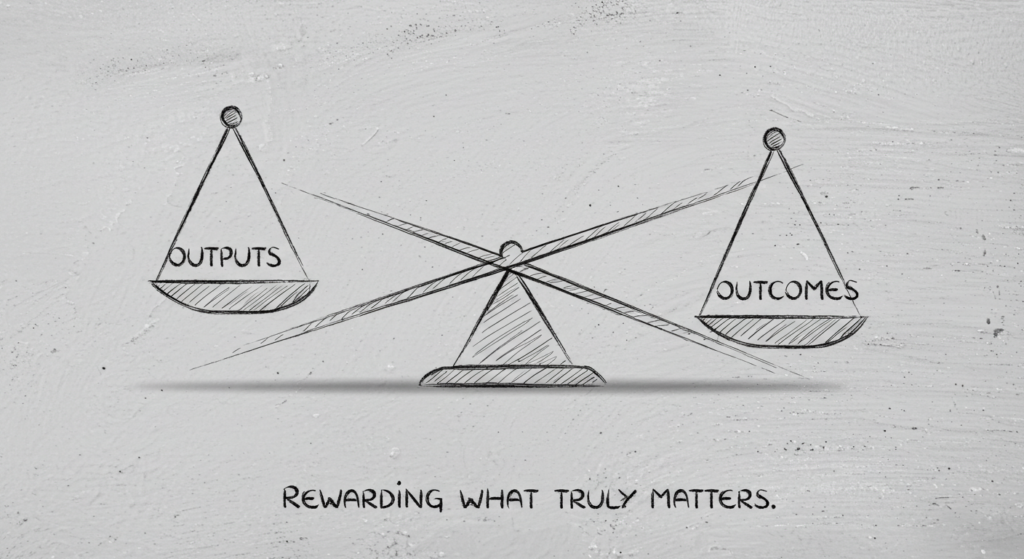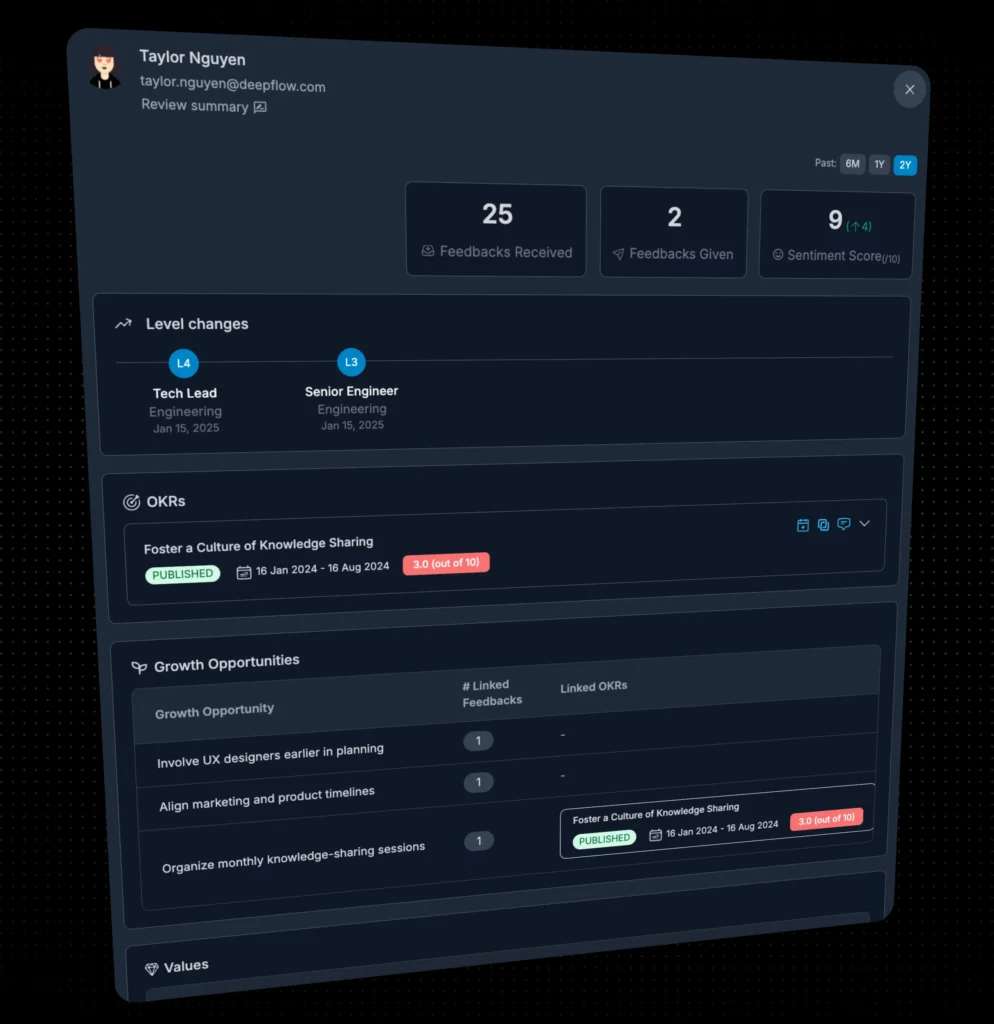Promotions shouldn’t surprise anyone—but they often do
Let’s talk about that awkward moment when someone finds out a colleague was promoted—and they had no idea it was even on the table. For many employees, the promotion process feels opaque, random, or even rigged.
The problem? It’s not just the people who weren’t promoted who feel frustrated—it’s the organization that ultimately suffers.
Why do these surprises happen?
- Lack of visibility: Most employees don’t understand how promotion decisions are made or what’s required to advance.
- Rewarding the few: Traditional promotion processes often focus on a narrow group of “high performers,” leaving the rest of the team disengaged and demotivated.
- Outputs over outcomes: Promotions often reward what’s visible (like delivering projects) rather than long-term impact, collaboration, or growth.
When employees feel blindsided, they lose trust in the organization. And when trust erodes, people leave.
Why promotion surprises are a failure of culture
If promotions are leaving people confused or disheartened, that’s not a people problem—it’s a culture problem. An organization’s approach to promotions reflects its values, priorities, and how much it invests in its people.
Here’s what goes wrong:
- Short-term thinking: When promotions focus solely on recent achievements, they ignore consistent contributors and long-term impact.
- Misaligned expectations: Employees don’t know what’s expected of them to grow, creating frustration when promotions feel arbitrary.
- Lack of accountability: Without clear data or criteria, bias and subjectivity creep in, undermining fairness.
Ultimately, the real cost isn’t just losing great talent—it’s creating a culture where people stop trying because they don’t believe their efforts will be recognized.

Why outcomes are hard to measure—but critical to reward
One reason promotions often feel unfair is that they reward outputs—things like projects delivered or revenue targets hit. While these are important, they don’t tell the whole story.
Outcomes—like long-term impact, leadership, and cultural contributions—are harder to measure but far more valuable.
For example:
- An engineer who fixes technical debt may not get the spotlight like someone delivering flashy new features, but their work is critical to the company’s stability.
- A team member who mentors others and fosters collaboration may not produce as much individual output, but their contributions elevate the entire group.
By focusing only on outputs, organizations miss these deeper, long-term contributions—and the people making them.

The power of data in creating fair, transparent promotions
Here’s where data changes the game. By shifting from subjective decisions to data-driven insights, organizations can make promotions more transparent, consistent, and equitable.
How does data help?
- Defining clear criteria: Data provides objective benchmarks for performance, growth, and potential, ensuring everyone knows what’s required to advance.
- Uncovering patterns: Analytics can identify disparities or blind spots, like underrepresented groups consistently missing out on promotions.
- Highlighting unseen contributions: Metrics like feedback, collaboration, and mentorship make it easier to recognize outcomes, not just outputs.
For example, tools like ClarityLoop aggregate performance data, feedback trends, and growth opportunities, giving organizations a complete picture of each employee’s impact.

Building a high-performance, data-driven culture
Creating a fair promotion process isn’t just about technology—it’s about fostering a culture where data and transparency guide every decision.
Here’s what this looks like in practice:
- Set clear expectations: Employees should know exactly how promotions are decided and what they need to achieve to grow.
- Use data to remove bias: Objective metrics reduce the influence of unconscious bias or favoritism.
- Reward more than deliverables: Recognize collaboration, leadership, and long-term impact, not just short-term wins.
- Communicate openly: Make the promotion process transparent, so employees trust the system and feel valued, even if they’re not promoted this time.
When organizations put data and transparency at the center of their culture, promotions become a source of motivation and alignment—not frustration.
Why this matters
Promotions aren’t just about advancing individuals—they’re about shaping the culture of an organization. When the process is opaque or unfair, it undermines trust, disengages employees, and drives turnover.
But when promotions are guided by clear criteria, objective data, and a focus on outcomes, they reinforce a culture of fairness, growth, and accountability.
Promotions done right: fairness, transparency, and growth
It’s time to rethink promotions—not as rewards for the few, but as opportunities to recognize the contributions of all. With the help of data and a commitment to transparency, organizations can create a culture where every employee understands their path to growth—and feels valued along the way.
When promotions are fair, clear, and aligned with long-term impact, they don’t just reward individuals—they build trust, strengthen culture, and drive success for the entire organization.


